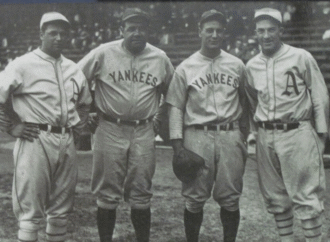Most Read from past 24 hours
Western Civilization
- Home
- Western Civilization

‘Anti-feminist’ Is Not a Synonym for Weak and Wimpy Women34
- Culture, Family, Featured, MomThink, Uncategorized, Western Civilization
- April 29, 2025
Feminism doesn’t hold the same power it once did. Women are increasingly asking themselves if they really can have it all, like the ’60s promised, and if they even really want it all. As a result, we’re seeing women walk away from the disillusionment of corporate lifestyles and a resurgence of “trad housewives.” But women
READ MORE
What Netflix’s Hit Show ‘Adolescence’ Gets Wrong About Toxic Masculinity21
- Culture, Entertainment, Family, Featured, Uncategorized, Western Civilization
- April 25, 2025
If you keep up with the intersection of politics and pop culture like I do, you can’t have missed hearing about a recent British drama that was the most-watched show on Netflix worldwide, and that became a surprising flashpoint of controversy. Podcasters, politicians and pundits from National Public Radio to the Daily Wire have weighed
READ MORE
Showing Up: The Quiet Strength That Shapes Who We Become33
- Culture, Featured, Uncategorized, Western Civilization
- April 18, 2025
Of all the lessons I learned growing up, the one that made the biggest impression was the commitment to show up every day. On the farm, taking care of cattle and hogs never stopped. Dad had to do the chores, whether it was 100 degrees or a windchill of -40, whether he was sick, sore,
READ MORE

Why Is Christianity Increasingly Attractive to Men?14
- Culture, Featured, Religion, Uncategorized, Western Civilization
- April 17, 2025
Holy Week is upon us once again, the week which starts with little children hitting one another with the palm branches they received at church and culminates eight days later as those same angels sit “in their Easter bonnet(s) with all the frills upon it.” For many Americans, Holy Week is no more than these
READ MORE
How Trump’s Tariffs Could Enrich Your Home17
- Culture, Economics, Family, Featured, MomThink, Politics, Uncategorized, Western Civilization
- April 16, 2025
Some of the first effects American consumers will feel from Trump’s tariffs will be in how much harder it will be to purchase the fast, cheap goods that Americans are used to procuring with the click of a button. This particular consequence of added duties on imported goods may be one which has a silver
READ MORE
Why Big Families Aren’t the Bane of America’s Existence34
- Culture, Education, Family, Featured, Uncategorized, Western Civilization
- April 10, 2025
A friend of mine recently announced her pregnancy to a gathering of mutual friends. She was grateful, but slightly overwhelmed, especially since this baby will be joining a growing troop of small children. Her announcement is just in time for National Siblings Day on April 10, one of those strange calendar remembrances that actually seems
READ MORE





